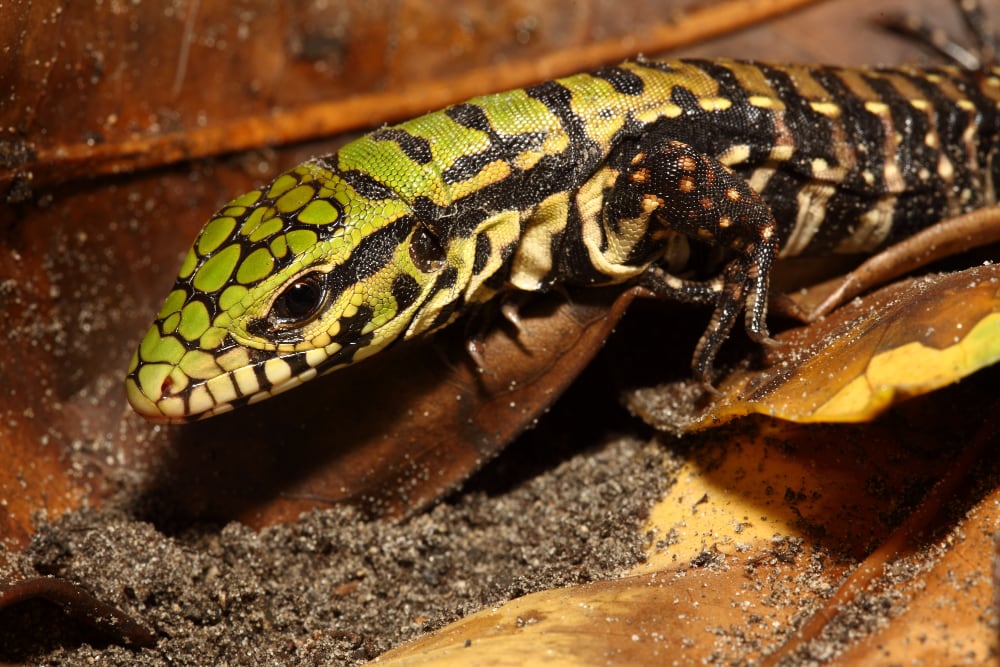The South Carolina Department of Natural Resources announced today that it has captured an adult female black and white tegu (Salvator merianae) in L
The South Carolina Department of Natural Resources announced today that it has captured an adult female black and white tegu (Salvator merianae) in Lexington County.
The SCDNR says that there have been reports of sightings in both Lexington and Aiken counties for months.
“The introduction of any non-native species can have serious negative impacts on native wildlife. Black and white tegus are no exception,” SCDNR herpetologist Andrew Grosse said in a statement released to the media. “Tegus mature and reproduce quickly, though most concerning may be their preference for eggs and the potential impacts to our native ground-nesting birds like turkey and quail, as well as other species such as the state-endangered gopher tortoise.”
Salvator Tegu Care Information
These reptiles are popular with reptile keepers, yet they have been showing up lately in the wild in the states in the southern portion of the United States. They are established in Florida and the Georgia Department of Natural Resources believes the reptile has become established in Georgia’s eastern Toombs and western Tattnall counties.
If you live in South Carolina and spot a tegu in the wild, you are urged to contact Andrew Grosse via email at grossea@dnr.sc.gov.
The Argentine black and white tegu is popular with expert reptile keepers. They are not for beginners. These omnivorous lizards grow about 2.5 to 4 feet in length and can live up to 20 years. They are native to Central and South America and sort of look like monitor lizards. Although not overly aggressive, tegus do have sharp teeth and strong jaws and claws. They are omnivores and eat all kinds of eggs, pet food, small mammals, insects, other reptiles, amphibians, and birds.


